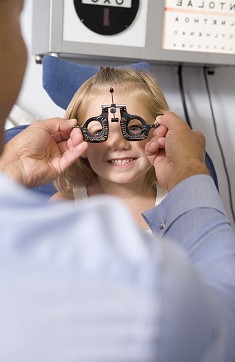At Great Lakes Eye Institute, we specialize in the diagnosis, treatment, and management of children’s vision problems in a way that makes them feel relaxed and comfortable. Our entire team of professionals is devoted to providing compassionate care and exceptional pediatric services including…
- Regular eye exams
- Performing surgery, microsurgery, and laser surgery (for problems including weak eye muscles, crossed eyes, wandering eyes, blocked tear ducts, retinal problems, and infections).
- Diagnosing problems of the eye caused by diseases of the body such as diabetes or juvenile rheumatoid arthritis and other medical and neurological diseases.
- Diagnosing visual processing disorders.
- Care for eye injuries.
- Prescriptions and supplying eyeglasses and contact lenses.


